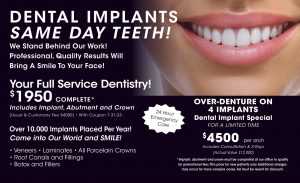Living With Autoimmune Disease
Autoimmune disease is characterized by nebulous symptoms that can make diagnoses difficult to come by and symptoms hard to live with. The National Institutes of Health estimates that upwards of 23 million Americans are affected by autoimmune disease. The key to finding relief in many instances is learning what is causing the immune system to go haywire.
In a healthy person, the body is capable of identifying the difference between cells that are safe and those that need fighting off. In people with an autoimmune disease, the immune system is flawed in a way that causes it to attack normal cells.
One theory is that a patient’s immune system is working properly to identify toxins, such as heavy metals or dormant infection that are stored in the thyroid, for instance, and is trying to eradicate them. “The result is a misguided attack on your own body,” writes the Office on Women’s Health.
A small sampling of autoimmune diseases includes celiac, Crohn’s, endometriosis, Guillain-Barre syndrome, narcolepsy, psoriasis and rheumatoid arthritis. It can affect any tissue in the body: the brain, the heart, the pancreas, the eye, the thyroid or the skin.
While there’s evidence to suggest that family members are more likely to develop the same or similar autoimmune diseases, genes don’t paint the whole picture. It’s likely that environmental factors play a role in triggering an autoimmune disease in a person with a genetic predisposition. This is known as expression.
Celiac disease is a clear example: A person with a wheat allergy and a person with celiac disease would both be treated similarly; namely, they will both remove gluten from their diets. More to the point, a person with a wheat allergy might break out in hives or go into anaphylaxis (shock) to indicate there is a rejection. However, that person is not at the same risk of intestinal damage, nutritional deficiencies and other risks associated with celiac disease in the long term, such as gastrointestinal cancers.
Because many autoimmune diseases affect different parts of the body all at once and symptoms will mysteriously wax and wane over time, these conditions may become hard to recognize and thus ignored. In most cases, there is no single test.
What we know, however, is that all autoimmune diseases involve a negative immune response, so a better solution is to quiet the immune system first. We can begin to identify triggers and remove them from our diet. Triggers are, as in the case of celiac, offending foods. Instead of using immune-suppressing drugs, next would be to layer in supportive, healing nutrients. In a natural model of treatment, the doctor will look to identify the root cause of autoimmune flare-ups and what can be done to restore the immune system to balance.
Douglas J. Pucci, DC, FAAIM, offers the latest science and clinical data on neurotoxic illness, hormone disruptions and chronic disease at his seminars. For more information, call 201-261-5430 or visit GetWell-Now.com.


























